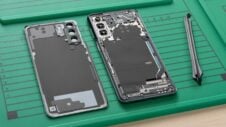Samsung's response to growing protectionism in the United States after President Donald Trump took office was to set up a new home appliance manufacturing plant in the country. The company committed $380 million to the plant last year and had it up and running in six months. It started commercial production of washing machines at the South Carolina plant earlier this month.
The plant in South Carolina is going to create almost 1,000 new industrial jobs in the state. Samsung had advised the US government not to go ahead with recommendations to slap import tariffs on its washing machines as it would harm job creation at the new factory. The government has gone ahead and done that anyway.
“A tax on every consumer”
President Trump had campaigned on the promise of imposing strict tariffs on products manufactured outside the country for sale in the US. This was meant to force manufacturers to set up plants in the US and create new industrial jobs.
A safeguard petition was recently filed with the US International Trade Commission by Whirlpool recommending a 50 percent tariff rate on large industrial washing machines built by Samsung. President Trump has approved the recommendations to impose the safeguard tariffs on imported large residential washing machines.
Samsung employees started manufacturing ship-ready washing machines at the new plant last week. They're manufacturing washer cabinets, inner tubs and bases from blank steel. Samsung still need to import some parts for the machines and these new tariffs will hinder its supply in the US market. That's going to have a negative impact on Samsung's earnings and will subsequently impact its new factory.
The government has imposed a 20 percent tariff on the first 1.2 million imported large residential washers in the first year. Machines imported above that number will be slapped with a 50 percent tariff. The tariffs will then decline to 16 percent and 40 percent respectively in the third year.
Samsung had said earlier this month that it hoped “the Administration will recognize Samsung’s commitment to U.S. manufacturing and help us protect the nearly 1,000 additional jobs we are bringing to the U.S.” That was a polite way of telling the government that it would jeopardize the new jobs by making this decision.
It's unclear what the company is planning to do next but as you can imagine, it's not too happy about this. “This tariff is a tax on every consumer who wants to buy a washing machine. Everyone will pay more, with fewer choices,” said a spokesperson for Samsung.





